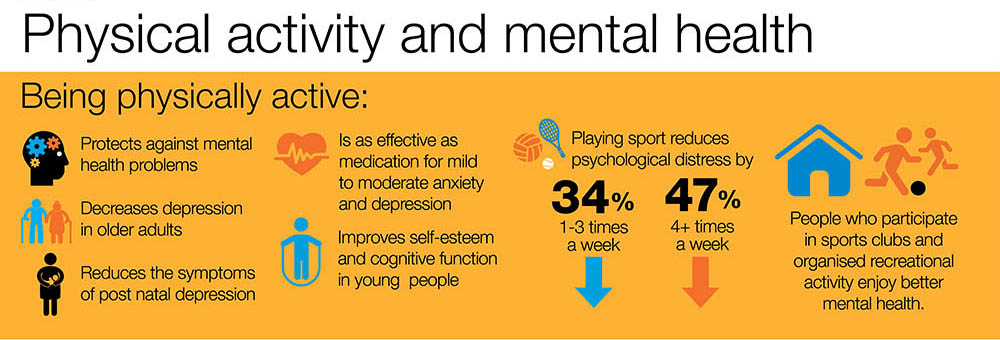Happiness Hacks: Simple and Effective Ways to Boost Your Mood
Happiness is a term that is often thrown around, but what does it actually mean? According to research, happiness is a positive emotional state characterized by feelings of joy, contentment, and satisfaction with life. It is an important aspect of well-being that can impact our physical and mental health.
Happiness
is a complex and multifaceted concept that includes both positive emotions and
a sense of meaning and purpose in life. It is not just a fleeting feeling of
pleasure, but rather a sustained sense of well-being and satisfaction with
one's life.
Why is
Happiness Important?
Happiness
is a fundamental aspect of human existence, and it is a concept that has been
studied extensively by researchers across various disciplines. It is not just a
fleeting emotion, but rather a long-term state of well-being that includes
positive emotions, a sense of purpose, and overall life satisfaction.
Research has shown that happiness is associated with a range of positive outcomes, including improved physical health, better relationships, and greater success in various domains of life. For example, a study by Lyubomirsky and colleagues (2005) found that happier individuals have stronger immune systems, lower levels of stress hormones, and a reduced risk of developing cardiovascular disease.
Happiness
is also linked to better cognitive functioning and academic achievement. A
study by DeNeve and Cooper (1998) found that happier individuals are more
likely to have higher levels of job performance and better problem-solving
abilities.
Moreover,
happiness is associated with better social relationships and increased social
support. A study by Pressman and Cohen (2005) found that happier individuals
are more likely to have larger social networks, better quality relationships,
and greater social support.
In addition
to these benefits, happiness is also important for its own sake. It is a fundamental
aspect of human flourishing, and it provides a sense of meaning and purpose in
life. Happiness allows us to experience the world in a positive way, and it
helps us to cope with the challenges and difficulties that we encounter.
Can We Find Happiness?
While happiness is important for human well-being, it can also be challenging to find and maintain over time. One reason for this is the phenomenon of the hedonic treadmill, where individuals adapt to positive changes in their lives and eventually return to their previous level of happiness. This means that even if we achieve our goals and experience positive life events, we may not necessarily feel happier in the long run. Additionally, social comparison can also make it difficult to feel happy, as we tend to compare ourselves to others and feel envious of their success and accomplishments. A study by Festinger (1954) found that individuals are more likely to feel dissatisfied with their own accomplishments when they are exposed to others who have achieved greater success.
Furthermore, factors such as poverty, illness, and social isolation
can also make it challenging to experience happiness. Despite these challenges,
research has shown that it is possible to cultivate happiness through
intentional practices such as gratitude, mindfulness, and acts of kindness.
Practice Gratitude: Gratitude is the act of recognizing and appreciating the good things in your life. Studies show that people who practice gratitude are happier and have a more positive outlook on life. Start a gratitude journal and write down things you are thankful for each day. A 2011 study found that writing down three good things that happened to you each day for a week increased happiness and decreased symptoms of depression for up to six months.
Cultivate
Positive Relationships: Our relationships with others play a crucial role in
our happiness. Surround yourself with people who support and encourage you.
Research shows that people who have positive relationships are happier and
healthier. A 2015 study found that
individuals who felt a greater sense of social connectedness were more likely
to report higher levels of life satisfaction and happiness.
Engage in Meaningful Activities: Engaging in activities that give our lives purpose and meaning can increase our happiness. Find hobbies or volunteer work that align with your values and interests. A 2014 study found that individuals who volunteered for a cause they believed in reported higher levels of well-being and greater life satisfaction.
Take Care
of Your Body: Physical health is linked to happiness. Exercise regularly, get
enough sleep, and eat a healthy diet. A 2017 study found that individuals who
reported engaging in regular physical activity had higher levels of life
satisfaction and happiness compared to those who did not engage in regular
physical activity. Studies show that people who take care of their bodies are
happier and have better self-esteem.
Practice
Mindfulness: Mindfulness is the practice of being present in the moment and
accepting things as they are. Research shows that mindfulness can reduce stress
and improve overall well-being. Practice mindfulness through meditation, yoga,
or simply taking a few moments each day to focus on your breath. A 2014 study
found that mindfulness meditation led to significant improvements in
well-being, including increased life satisfaction and reduced symptoms of
anxiety and depression.
In conclusion, happiness is an important aspect of well-being that can impact our physical and mental health. By practicing gratitude, cultivating positive relationships, engaging in meaningful activities, taking care of our bodies, and practicing mindfulness, we can increase our happiness and improve our overall quality of life. Remember, happiness is not a destination, but a journey. Enjoy the process!











Comments
Post a Comment